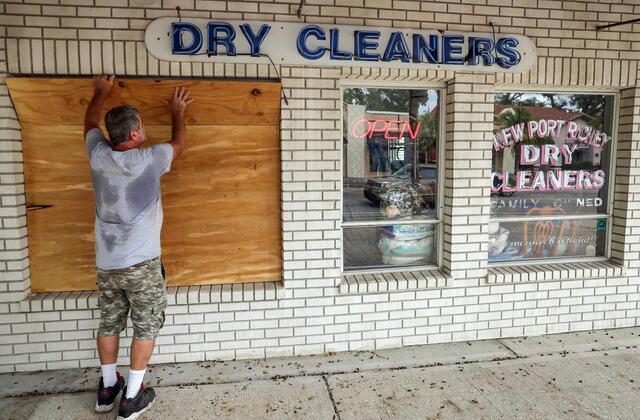Hurricane Milton, a Category 5 storm on the Saffir-Simpson scale, is headed towards Florida, bringing winds of over 260 km/h. Authorities have started evacuating residents from high-risk areas along the southeastern coast of the United States. Milton is expected to make landfall in Florida on Wednesday evening.
As of Tuesday night, the hurricane’s center was located approximately 650 kilometers southwest of Tampa, Florida. Milton, which had briefly weakened, regained its status as a Category 5 hurricane, according to the National Hurricane Center (NHC). The NHC predicts the storm will hit Florida’s central-west coast on Wednesday evening and move across the state towards the Atlantic Ocean on Thursday.
Although Hurricane Milton may weaken slightly before landfall, it is expected to still be a Category 4 hurricane, capable of causing extreme winds, heavy rain, and life-threatening storm surges. Experts warn that the destructive effects will be felt across a large area.
State of Emergency Declared
President Joe Biden has declared a state of emergency in Florida, and the White House announced it would delay a planned trip to Germany and Angola to monitor the situation. “This could be the worst storm to hit Florida in over a century,” President Biden said. Mandatory evacuation orders have been issued for 11 counties in Florida, affecting approximately 5.9 million people.
Florida Governor Ron DeSantis reported that over 300 trucks have been deployed to clear debris left by Hurricane Helene, a recent storm. “All that debris could become deadly projectiles—like spears coming your way,” Governor DeSantis warned.
Local officials are urging residents not to ignore evacuation orders. “It’s not too late—get in your car, cross the bridge, and find shelter,” said Belleair Beach Mayor Dave Gattis. Tampa’s mayor also emphasized that storm surges up to 4.5 meters high could flood and destroy homes.
Public Health and Fuel Shortages
In response to the impending storm, U.S. Health and Human Services Secretary Xavier Becerra declared a public health emergency in Florida, ensuring that federal resources will be available to help mitigate the health effects of the hurricane. “We will do everything we can to support Florida’s response to the health impacts of Hurricane Milton,” Becerra said.
This is the second public health emergency declared in Florida in the past two weeks. A similar measure was enacted after Hurricane Helene.
Fuel shortages are also a growing concern, with local media reporting that more than 17% of Florida’s nearly 16,000 gas stations are out of fuel as residents and tourists rush to prepare for Milton’s arrival. In addition, several cities and counties have imposed curfews starting Wednesday night to ensure public safety during the storm.





